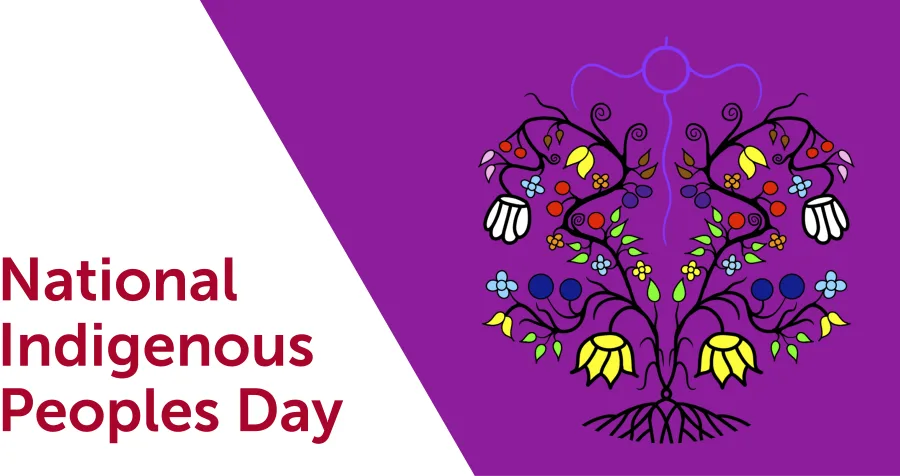National Indigenous Peoples Day 2025: Since time immemorial

“First Peoples have carried the breath and soul of this immense boreal land that is Canada, since time immemorial….
For millennia, they have been the guardians and custodians of a rich and diverse, natural, cultural and linguistic heritage of great tangible and intangible importance… only a sliver of which we can now appreciate.”
—The Right Honourable Michaëlle Jean, former Governor General of Canada.
What is it
June 21 is National Indigenous Peoples Day, a time to connect with family, friends, community, and the land and to learn from Indigenous peoples. Coinciding with the summer solstice, this date marks the start of summer and is the longest day of the year.
Berry picking and fishing seasons begin on June 21, as does the Powwow trail. For generations, many First Nations, Inuit, and Métis communities have celebrated their cultures, languages, and traditions at this time of year. The summer solstice is a time of renewal and celebration, holding deep spiritual and cultural significance for many Indigenous Peoples. Traditionally, there are significant gatherings in communities from coast to coast with parades, dancing, music, festivals, and food.
How it came to be
In 1996, Governor General Roméo LeBlanc declared June 21 as National Aboriginal Day.
Several Indigenous groups were consulted and supported this, including:
- The National Indian Brotherhood (now called the Assembly of First Nations)
- The Sacred Assembly, a national conference of Indigenous and non-Indigenous people
- The Royal Commission on Aboriginal Peoples (RCAP), which recommended the designation of a National First Peoples Day
In 2017, Prime Minister Justin Trudeau issued a statement announcing that this day would be renamed as National Indigenous Peoples Day.
What you can do
There are many ways to celebrate! On National Indigenous Peoples Day and beyond, engage with the innovation, excellence, cultures, and histories of First Nations, Inuit, and Métis Peoples.
Let’s mark this day with action and reflection, guided by our shared responsibility to seek truth and to act towards reconciliation. We invite you to engage with the following resources:
- Find a Friendship Centre and consider joining their open programming: ofifc.org/about/
- Visit your local library for books and events: torontopubliclibrary.ca/services/indigenous-initiatives/
- Browse the National Film Board’s (NFB) website or app to view a selection of Indigenous-made films: nfb.ca/indigenous-cinema/
- Listen to someone new. Be it a podcast or an album by an Indigenous artist, explore some of what Indigenous creators and artists are producing.
- Get outside! Learn more about plants, the environment, and traditional practices with Joseph Pitawanakwat, an Anishinaabe educator.
- Learn about and celebrate Indigenous changemakers, including:
- Dr. Cindy Blackstock [AB3] (Gitxsan), advocate for Indigenous children’s rights
- Autumn Peltier (Wiikwemkoong First Nation), international water protector
- Jody Wilson-Raybould (We Wai Kai Nation), legal and political leader
- Tantoo Cardinal (Métis/Cree), a trailblazing Indigenous actress
- Qajaq Robinson, Inuk lawyer and former Truth and Reconciliation Commission (TRC) Commissioner
- Learn about the YMCA of Greater Toronto’s commitment to Reconciliation. Anti-Colonialism and Indigenous Reconciliation are the first pillar of the Y’s Diversity, Equity, Inclusion, and Belonging strategy: ymcagta.org/about-us/indigenous-reconciliation.










